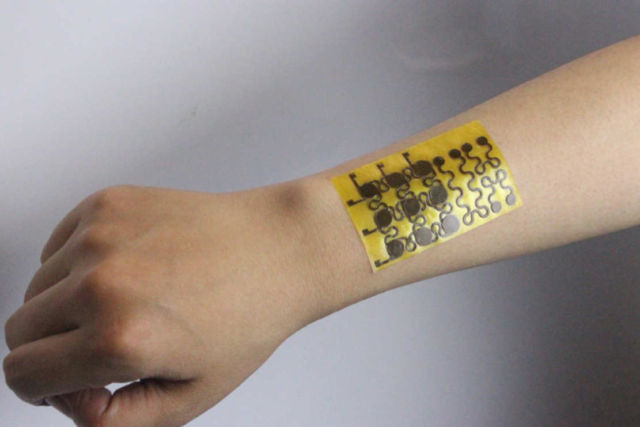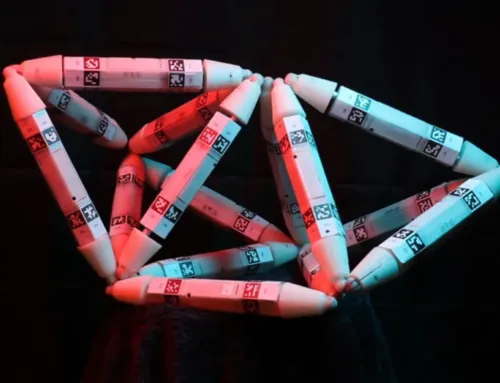Scientists have developed a new type of malleable, self-healing and fully recyclable ‘electronic skin,’ that has applications in robotics and prosthetics.
CU Boulder researchers developed this new type of ‘electronic skin,’ known as e-skin, a thin, translucent material that can mimic the function and mechanical properties of human skin.
A number of different types and sizes of wearable e-skins are now being developed in labs around the world as researchers recognize their value in diverse medical, scientific and engineering fields.
The new CU Boulder e-skin has sensors embedded to measure pressure, temperature, humidity and air flow, said Jianliang Xiao, an assistant professor in CU Boulder’s Department of Mechanical Engineering who is leading the research effort with Wei Zhang, an associate professor in CU Boulder’s Department of Chemistry and Biochemistry as well as a faculty member in the Materials Science and Engineering Program.
The technology has several distinctive properties, including a novel type of covalently bonded dynamic network polymer, known as polyimine that has been laced with silver nanoparticles to provide better mechanical strength, chemical stability and electrical conductivity.
Jianliang Xiao, said:
“What is unique here is that the chemical bonding of polyimine we use allows the e-skin to be both self-healing and fully recyclable at room temperature. Given the millions of tons of electronic waste generated worldwide every year, the recyclability of our e-skin makes good economic and environmental sense.”
source CU Boulder






Leave A Comment